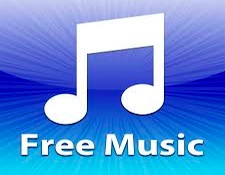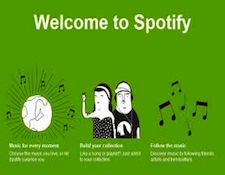It’s the time of year for saving money!
In an article in the NY Times on June 8th David Carr advances the idea that “free music” available through the Internet is killing the music industry. And instead of charts and graphs Mr. Carr offers up himself as a prime example of shifting demographics.
 First, read the article. It will, if you are in the music industry, depress you. If you are not in a music industry, or a music collector, the article will leave you wondering, how, besides live shows, will musicians make money in the near future? And how will young musicians ever make the transition from starvation to subsistence to middle class wages? VanDyke Parks lays out the current situation for songwriters in an article in the Daily Beast.
First, read the article. It will, if you are in the music industry, depress you. If you are not in a music industry, or a music collector, the article will leave you wondering, how, besides live shows, will musicians make money in the near future? And how will young musicians ever make the transition from starvation to subsistence to middle class wages? VanDyke Parks lays out the current situation for songwriters in an article in the Daily Beast.
How valid is David Carr’s argument that casual music listeners like himself no longer “need” a personal music collection because, “With scarcity now gone, songs are in the air, a mist we move through like so much department store perfume. We are no longer collecting music; it is collecting us on various platforms.” Using himself as an example, Carr has decided he no longer needed to keep a library of CDs, or buy new ones because all his music “needs” were being met by streaming services. Carr sold all his CDs at a garage sale and isn’t looking back.
I think the first casualty of this new paradigm is the listener’s personal involvement with the music and the creators of the music. What was that song? Who made that music? It doesn’t matter to a casual consumer because music, when served up and consumed as background and soundtrack for living, no longer has the same impact or meaning as when it’s chosen as a primary stimuli. The bond between creator and consumer won’t be as strong, and may never be powerful enough for listeners to make the jump to fandom…
 Casual music “consumers” (those who aren’t fans or collectors) have become non-players in the world of music monetization. Since the end-users pay nothing for their music, naturally the purveyors of all this free music – Spotify, Pandora, Google, uTube, etc., must pay nothing (or virtually nothing) to the artists in order for their business plans to remain viable (or so they say.).
Casual music “consumers” (those who aren’t fans or collectors) have become non-players in the world of music monetization. Since the end-users pay nothing for their music, naturally the purveyors of all this free music – Spotify, Pandora, Google, uTube, etc., must pay nothing (or virtually nothing) to the artists in order for their business plans to remain viable (or so they say.).
The short-term result of this shift in how consumers consume music and what they seem willing to actually pay for means that recorded music as a viable product may be over. In the new world commercial paradigm recorded music may be relegated to a loss-leader advertising expense – something that exists only to bring peoples bodies to live performances.
Never before have we had such fine tools for making recordings. The irony is that never before have there been less opportunity to make money from those recordings – at least if your goal is to sell music to a casual listener…





